Historical places in New Orleans tell captivating tales of French, Spanish, African, and American cultures blending harmoniously over centuries. From the vibrant colonial architecture of the French Quarter to solemn memorials honoring the past and lively jazz halls echoing with soulful rhythms, these landmarks embody the city’s unique heritage. Whether you’re a dedicated history buff or a curious traveller, exploring these ten iconic destinations offers an immersive experience into New Orleans’ rich cultural mosaic, resilient spirit, and deep-rooted traditions that continue to shape its enduring charm and vibrant identity today.
Top 10 Historical Places In New Orleans
Explore these historical places in New Orleans, each rich with vibrant culture, storied pasts, and iconic architecture.
1. French Quarter
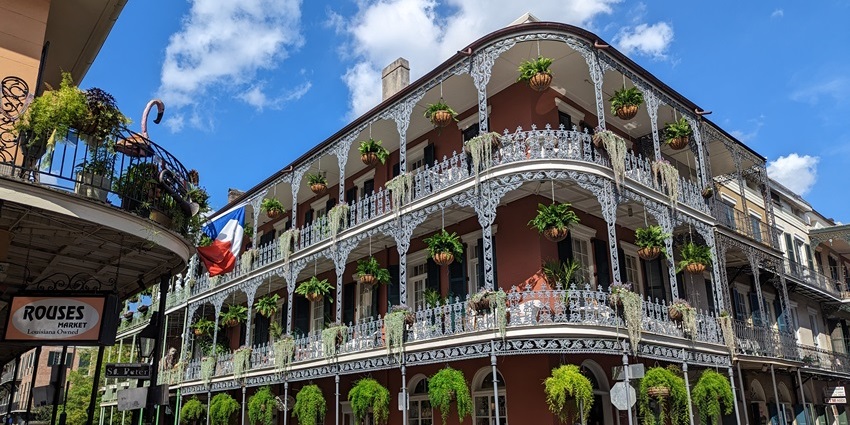
Photo: Roller Coaster Philosophy / Wikimedia Commons
The French Quarter, established in 1718, is New Orleans’ oldest neighborhood, famous for its distinctive Creole architecture, wrought-iron balconies, and lively atmosphere. Visitors explore landmarks like Jackson Square, St. Louis Cathedral, and vibrant streets filled with cafes and music. This historic district captures the city’s multicultural roots and offers an immersive experience of its colonial past blended with modern cultural vibrancy.
Distance From Louis Armstrong Airport: 20 km
Places To Eat: Café du Monde, Antoine’s, Galatoire’s.
2. St. Louis Cathedral
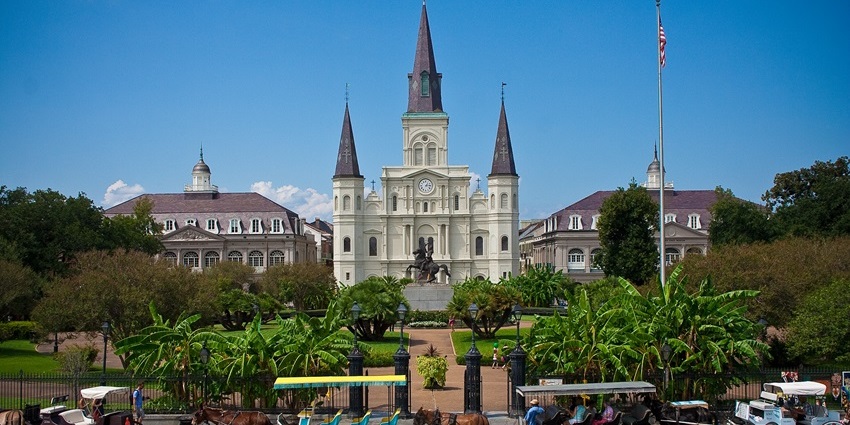
Photo: Royalpt78 / Wikimedia Commons
Located in the heart of the French Quarter, St. Louis Cathedral is the oldest continuously active Roman Catholic cathedral in the U.S., dating back to 1789. Its striking Gothic Revival architecture and beautiful stained glass windows make it a focal point for visitors and worshippers. The cathedral symbolises New Orleans’ religious heritage and plays a central role in community events and celebrations.
Distance From Louis Armstrong Airport: 20 km
Places To Eat: Muriel’s Jackson Square, Tableau, Brennan’s
3. Garden District
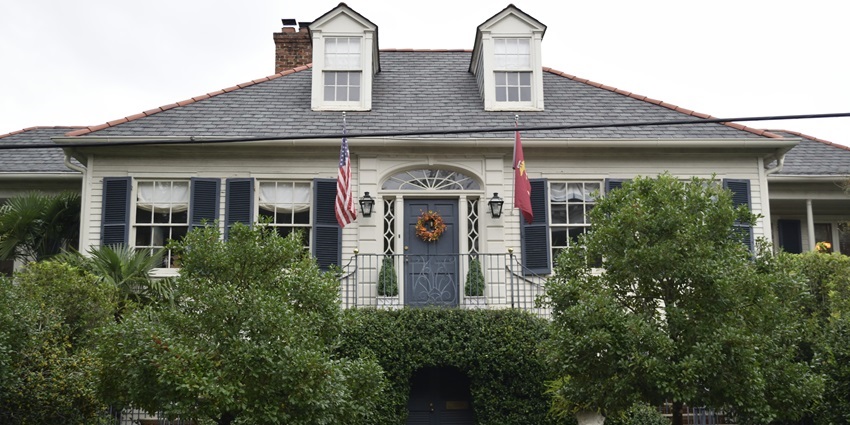
Photo: Daniel Hartwig / Wikimedia Commons
The Garden District is famed for its grand 19th-century mansions, pristine gardens, and historic charm. Developed in the 1830s, the neighborhood showcases stunning examples of Greek Revival and Victorian architecture. Walking tours reveal stories of antebellum wealth and social history, with beautifully preserved homes and iconic landmarks like Lafayette Cemetery No. 1, offering a window into New Orleans’ aristocratic past.
Distance From Louis Armstrong Airport: 12 km
Distance From French Quarter: 4 km
Places To Eat: Commander’s Palace, Atchafalaya, Coquette
4. Jackson Square
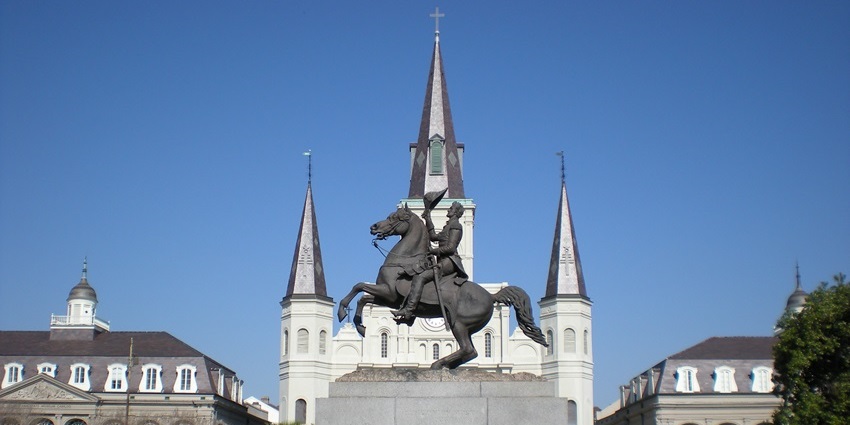
Photo: Sami99tr / Wikimedia Commons
Jackson Square is a historic park in the French Quarter named after Andrew Jackson, celebrating his role in the Battle of New Orleans. Surrounded by beautiful buildings, including the St. Louis Cathedral and Cabildo, it has been a social and cultural hub since the 18th century. Today, it thrives with artists, musicians, and vendors, embodying the city’s creative spirit amidst historic grandeur.
Distance From Louis Armstrong Airport: 20 km
Places To Eat: Café Beignet, The Court of Two Sisters, Napoleon House
5. The Cabildo
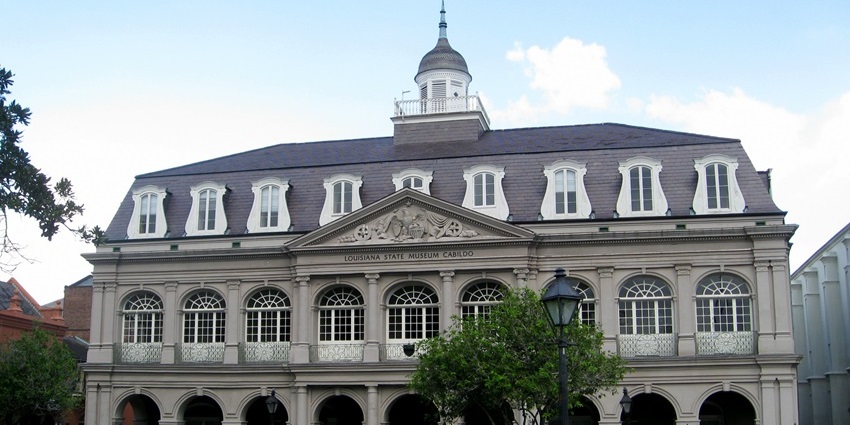
Photo: Jared422 / Wikimedia Commons
Built in 1799, the Cabildo served as the Spanish colonial government’s seat and later witnessed the Louisiana Purchase transfer in 1803. Now a museum, it houses artifacts detailing Louisiana’s colonial and early American history. Visitors can explore historic chambers and exhibits that illustrate New Orleans’ political evolution and rich multicultural heritage, making it a must-visit landmark.
Distance From Louis Armstrong Airport: 20 km
Places To Eat: Café Amelie, Mr. B’s Bistro, GW Fins
6. Preservation Hall
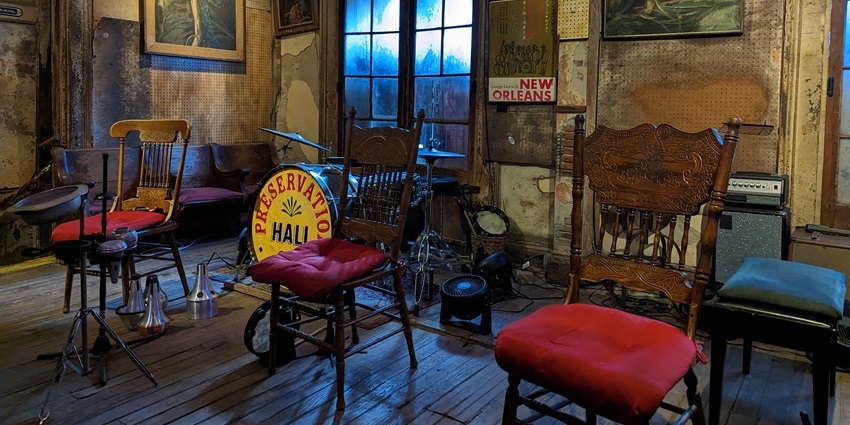
Photo: Roller Coaster Philosophy / Wikimedia Commons
Founded in 1961, Preservation Hall is a legendary jazz venue dedicated to preserving New Orleans’ musical heritage. This small, unadorned space hosts nightly performances featuring traditional jazz artists, connecting visitors with the city’s iconic sound. The hall celebrates African American culture and the roots of jazz, making it a historic and cultural treasure that resonates deeply within New Orleans’ identity.
Distance From Louis Armstrong Airport: 20 km
Places To Eat: Coop’s Place, Felix’s Restaurant, Royal House Oyster Bar
7. Lafayette Cemetery No. 1
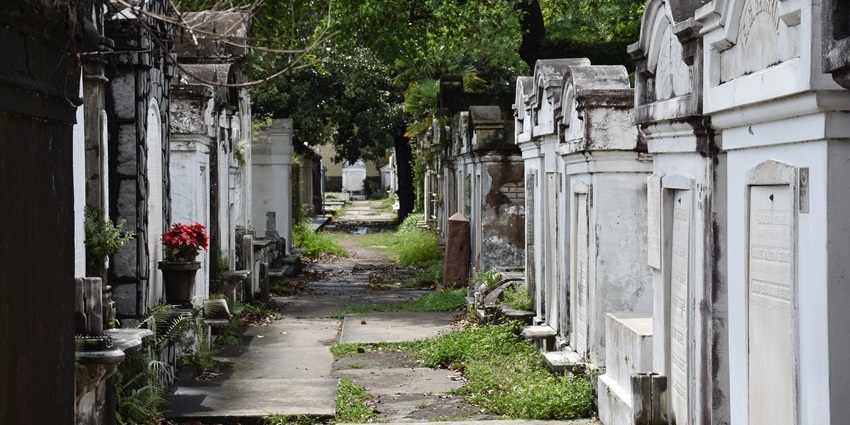
Photo: MusikAnimal / Wikimedia Commons
Dating to 1833, Lafayette Cemetery No. 1 in the Garden District is famous for its unique above-ground tombs and labyrinthine layout. The cemetery reflects New Orleans’ distinctive burial traditions influenced by French and Spanish customs. Visitors explore its ornate monuments and learn about the city’s cultural attitudes towards death, history, and remembrance, in a hauntingly beautiful setting.
Distance From Louis Armstrong Airport: 12 km
Places To Eat: The Bulldog, The Rum House, La Petite Grocery
8. New Orleans Museum Of Art
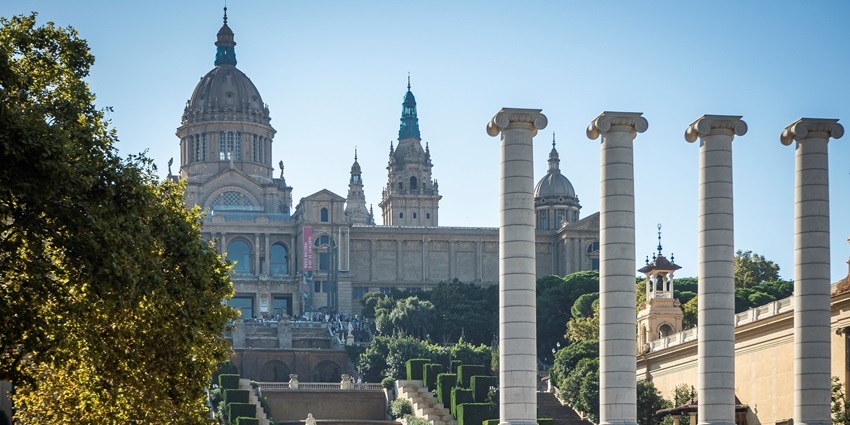
Photo: matressa_ / Wikimedia Commons
Located in City Park, NOMA was established in 1911 and is the oldest fine arts museum in the city. It features a diverse collection spanning centuries, including American and French art, decorative arts, and photography. The surrounding Sculpture Garden provides a tranquil outdoor art experience. The museum embodies New Orleans’ artistic heritage and commitment to preserving cultural history.
Distance From Louis Armstrong Airport: 14 km
Distance From French Quarter: 6 km
Places To Eat: Café du Monde (City Park location), Café NOMA, Morning Call
9. Beauregard-Keyes House
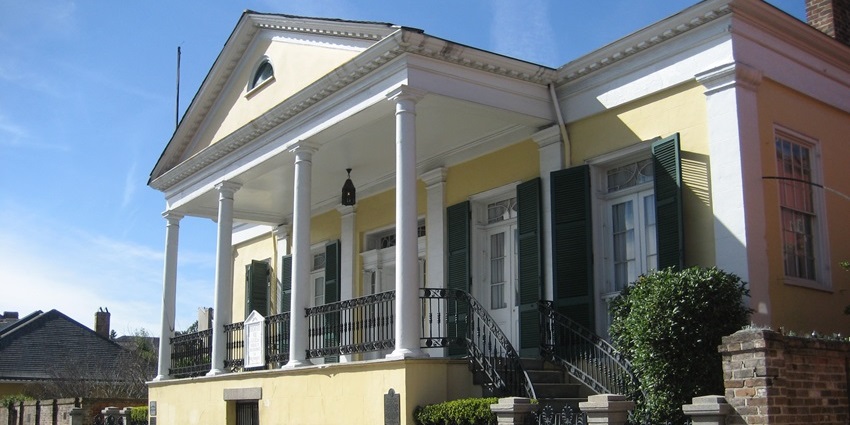
Photo: Infrogmation / Wikimedia Commons
Built in 1826, the Beauregard-Keyes House is a well-preserved Creole townhouse in the French Quarter. It was home to Confederate General P.G.T. Beauregard and later author Frances Parkinson Keyes. The house operates as a museum showcasing period furnishings and exhibits about New Orleans’ cultural history, architecture, and notable residents, offering visitors an intimate glimpse of 19th-century life.
Distance From Louis Armstrong Airport: 20 km
Places To Eat: K-Paul’s Louisiana Kitchen, Muriel’s, Tujague’s
10. Congo Square
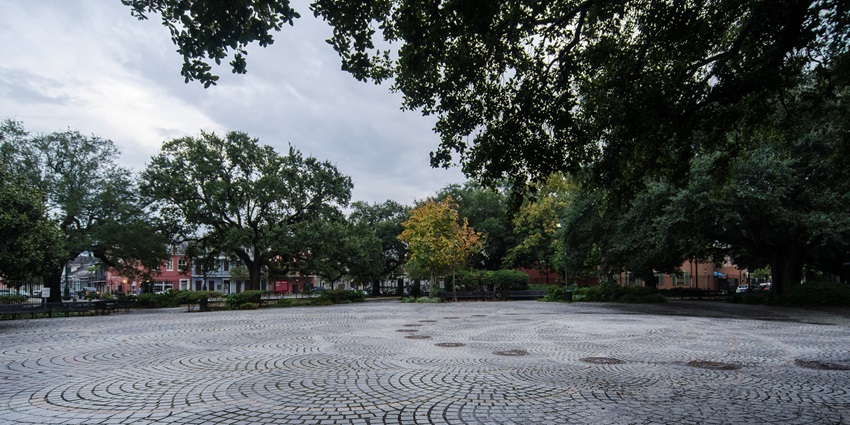
Photo: Jeff Hitchcock / Wikimedia Commons
Congo Square is a historic gathering place in Louis Armstrong Park where enslaved Africans and free people of color met on Sundays to play music, dance, and preserve African cultural traditions. It is considered the birthplace of New Orleans jazz and African American cultural expression. Today, it serves as a symbolic site celebrating resilience, community, and the city’s rich multicultural roots.
Distance From Louis Armstrong Airport: 20 km
Places To Eat: Dooky Chase’s Restaurant, Coop’s Place, Willie Mae’s Scotch House
Historical places in New Orleans vividly portray a city shaped by a rich blend of diverse peoples, cultures, and histories. From the vibrant streets of the French Quarter with its unique architecture to the solemn, haunting beauty of the city’s famous cemeteries and the soulful jazz halls echoing with music, each site reflects layers of resilience, creativity, and cultural fusion. Book your trip with TripXL to experience the fascinating stories behind this complex and vibrant city.
Cover Photo: Lindsey Flynn / Pexels


 WhatsApp
WhatsApp
 Twitter
Twitter









